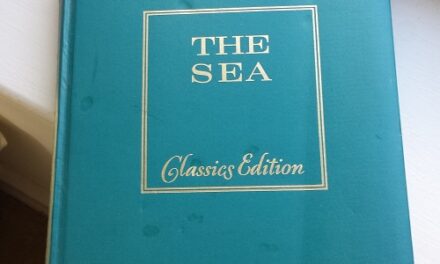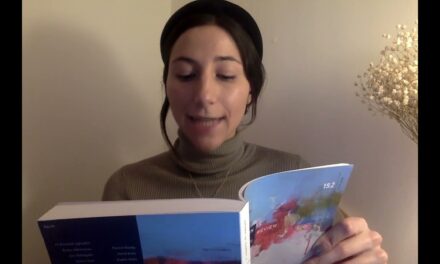According to our sources, the very large truck circling campus contains our new issue! Unfortunately, the driver is apparently unable to locate the mossy nook we call our office. But do not worry! Editor Matt McBride is in hot pursuit. After only three mile-long laps, the distance between Matt and the truck has barely widened. We hope he catches it soon. We are almost out of popcorn. Go, Matt!
Dean Rader: One of the recurring themes of my book, Works & Days, is the notion that the self is not just in flux but is many selves fabulously in flux. So I started working on self-portraits that intentionally avoided the individual self, that sketched the self as a revolving series dialogues. These include such self-portraits as Michael Jackson to Robert Hayden, Hesiod to Dorothea Lange, and even Frank O’Hara to the Distended Angel. “Self-Portrait as Dido to Aeneas” tries to place the self concurrently in the present and in history as a site of loss. It seems like many self-portraits try to depict “loss” of some kind, but loss is never just about the self—it always involves another.
Jeff Walker: This poem concerns “trailing spouse” culture at an international research organization in Bogor, Indonesia, where I live. Both my wife and I are from the U.S., and her job as a scientist is the reason we are here. The lunch described in the poem was a spouse meeting, and they were mad! They wanted to be given work from the same organization; many have science degrees themselves. That was what got the poem going, but I was able to work in a lot of elements: monkeys, two mentions of “bucket,” tennis (we play a lot here), and different forms of inarticulateness or being made mute.
Brandel France de Bravo: My book of poems, Provenance, contains twenty-six poems inspired by etymologies—a word for every letter of the alphabet. The poems are like word biographies, but they are also jazz improvisations: Each word’s history and influences open up dozens of alleyways and wooded paths to wander. I have studied and speak a number of languages, and I’m fascinated by words that exist in one language but not in another (saudade in Portuguese is one of the most famous examples, but convivir—the title of my poem in The Cincinnati Review—is another). In language, if not in life, I love “false friends.” I also love unlikely siblings. The Spanish verb “to know” is the same as the verb “to taste.” For a poet that is a tasty duo.
The Cincinnati Review is available for order through our secure online form











